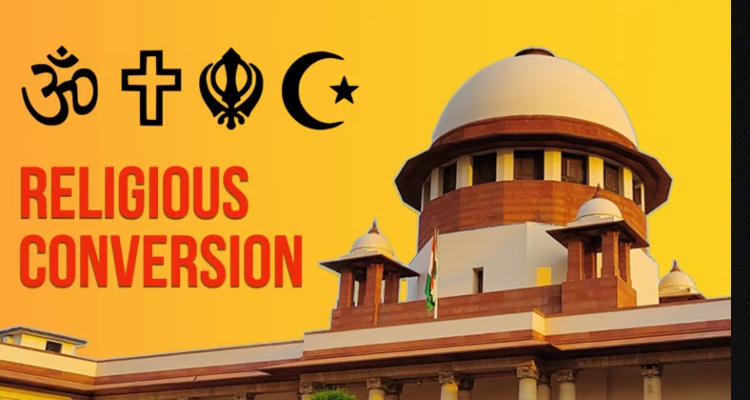
In a landmark ruling, the Supreme Court of India has recently declared that religious conversions made solely to claim reservation benefits, without genuine belief in the adopted religion, amount to a “fraud on the Constitution.”
The court upheld the Madras High Court’s January 24 decision, which had denied a Scheduled Caste (SC) certificate to C. Selvarani, a woman who converted from Hinduism to Christianity and later claimed to be Hindu again for the purpose of accessing reservation benefits.
Justice Mahadevan, delivering the 21-page judgment, emphasized that conversions should be based on sincere belief in the adopted faith, not for personal or social advantage.
“If the purpose of conversion is to derive reservation benefits rather than a genuine belief in the religion, such actions are impermissible and undermine the social ethos of the reservation policy,” he stated.
The bench noted that Selvarani, despite claiming to have reverted to Hinduism, continued to practice Christianity, regularly attending church. Her contradictory claims, the court ruled, were “untenable” and violated the objectives of India’s reservation system, which aims to uplift marginalized communities.
Selvarani’s father, although born into a Scheduled Caste (SC) community, had converted to Christianity, thereby losing his caste identity. The Supreme Court highlighted that those who convert to another religion forfeit their caste status and must provide substantial evidence of reconversion to regain SC benefits.
The court found no credible proof that Selvarani had truly reconverted to Hinduism. There was no public declaration, religious ceremony, or formal documentation supporting her claim. Instead, evidence indicated that she continued practicing Christianity.
The court also dismissed Selvarani’s argument that her caste was “under eclipse” during conversion and could be reinstated upon reconversion. The bench deemed this argument “unsustainable,” reinforcing that caste identity is linked to one’s religion and community acceptance, and it cannot be reclaimed through mere claims.
The judgment addressed the broader issue of conversions carried out for ulterior motives, emphasizing that such practices erode the fundamental principles of India’s reservation policies. “Conversion purely for reservation benefits, devoid of belief, is impermissible,” the bench declared.
This ruling reaffirms the integrity of India’s reservation system, protecting its intent to assist genuinely marginalized groups. The court concluded that in cases of disputed reconversion, compelling evidence is necessary to validate the claims.




